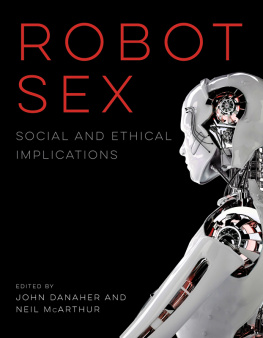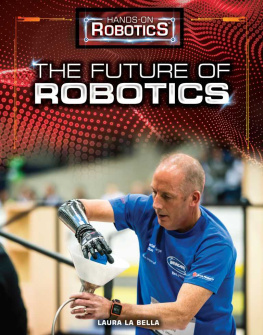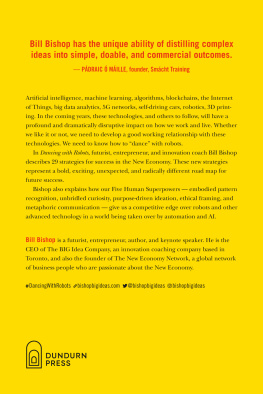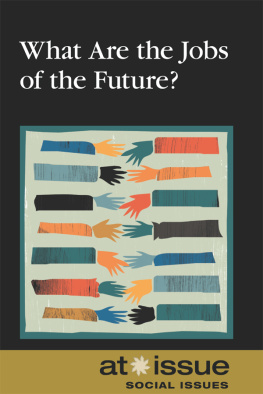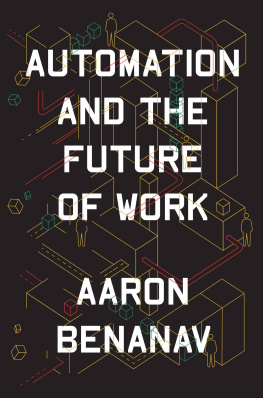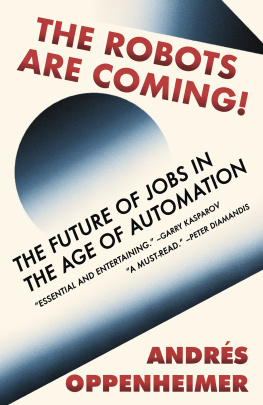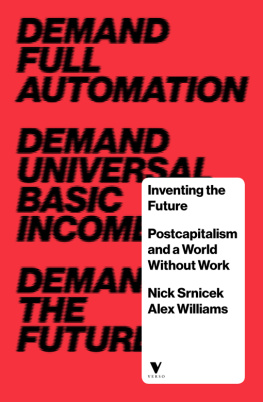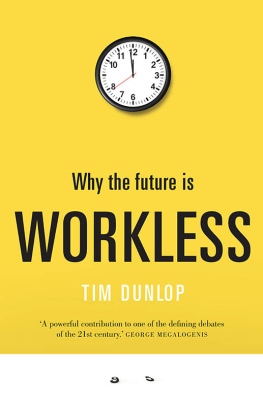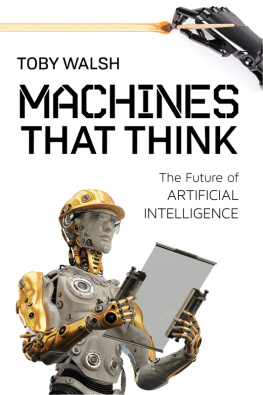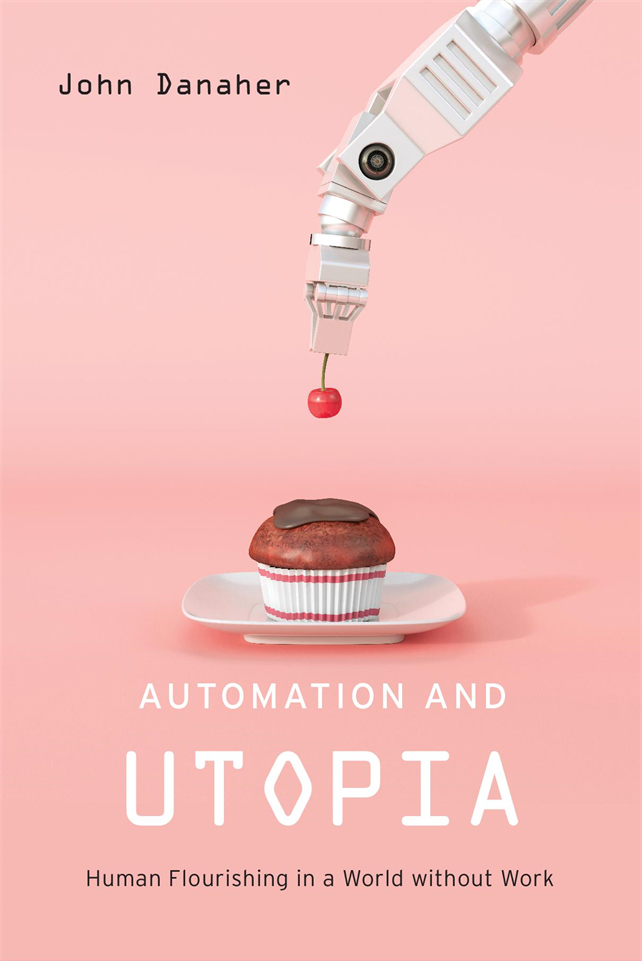978-0-674-98424-0 (hardcover : alk. paper)
Names: Danaher, John, author.
Title: Automation and utopia : human flourishing in a world without work / John Danaher.
Description: Cambridge, Massachusetts : Harvard University Press, 2019. | Includes bibliographical references and index.
Subjects: LCSH: Utopias. | Technological unemployment. | Quality of life. | Human security. | Forecasting. | Human-robot interaction.
This book is dedicated to the memory of my sister Sarah (19742018)someone who was not afraid to dream of a better world, and who worked every day to make it a reality
It is the autumn of humanity and we are moments between raindrops.
(Kaj Sotala)
HUMAN OBSOLESCENCE IS IMMINENT. We are living through an era in which our activity is becoming less and less relevant to our well-being and to the fate of our planet. This trend toward increased obsolescence is likely to continue in the future, and we must do our best to prepare ourselves and our societies for this reality. Far from being a cause for despair, this is in fact an opportunity for optimism. Harnessed in the right way, the technology that hastens our obsolescence can open us up to new utopian possibilities and enable heightened forms of human flourishing.
That, in a nutshell, is the argument of this book. But you might question its starting presumption. Is human obsolescence really imminent? Surely humans have never been more relevant than they are right now? As I write these words, there are approximately 7.6 billion people living on earth. By the time you read these words, there will be even more. Human influence and control over the planet is unprecedented. According to one estimate, a mere 10,000 years ago, the total human population, and their livestock and pets, accounted for less than 0.1 percent of the terrestrial vertebrate biomass. By the late twentieth century, the figure was 98 percent. Humans now dominate the planet, wielding enormous technological power to shape (and despoil) its resources to their own advantage. People now refer to this era as the anthropocene in order to capture this sense that human influence is unprecedented. To suggest that humans are growing obsolete seems obtuse.
And yet thats the view that motivates this book. The meaning of obsolescence is crucial here. Obsolescence is the process or condition of being no longer useful or used; it is not a state of nonexistence or death. I am not suggesting, nor assuming, that humans are on the cusp of extinction, though there are some who worry that might be the case. What I am suggesting is that humans are on the cusp of becoming no longer usefulthat we will no longer control the fate of the planet and the fate of our species as we have done in the recent past.
The technological forces that have made our planet-wide dominance possible are the very same forces that are hastening our obsolescence. We have created complex techno-social systems to govern our lives, manufacture our goods, and supply our services. Within these systems, we increasingly outsource and automate our decision-making through the use of robotics, artificial intelligence, and other smart machines. The trend toward automation is growing. Machines are being created to anticipate our wants and needs and provide us with all the entertainment, food, and distraction we could ever desire. Soon, there will be little left for us to do except sit back and enjoy the ride. We are moving from the anthropocene to what might be called the robocene.
To some, this sounds like a profoundly depressing prognosis. The purpose of this book is to challenge that attitude. Is the automated future something to be welcomed or feared? The book will defend four main propositions by way of responding to that question.
Proposition 1: The automation of work is both possible and desirable: work is bad for most people most of the time, in ways that they dont always appreciate. We should do what we can to hasten the obsolescence of humans in the arena of work.
Proposition 2: The automation of life more generally (outside of work) is a less positive thing: there are important threats to human well-being, meaning, and flourishing that are posed by the use of automating technologies in everyday life. We need to carefully manage our relationship with technology to limit those threats.
Proposition 3: One way to manage our relationship with technology would be to build a Cyborg Utopia, but its not clear how practical or utopian this would really be: integrating ourselves with technology, so that we become cyborgs, might regress the march toward human obsolescence outside of work. Doing so may have many advantages but will also carry practical and ethical risks that make it less desirable than it first appears.
Proposition 4: Another way to manage our relationship with technology would be to build a Virtual Utopia, and this is both more practical and utopian than is commonly assumed: instead of integrating ourselves with machines in an effort to maintain our relevance in the real world, we could retreat to virtual worlds that are created and sustained by the technological infrastructure that we have built. At first glance, this seems tantamount to giving up, but there are compelling philosophical and practical reasons for favoring this approach.
These propositions will be defended in the two main parts of the book (two per part). Each of them is contentious. Objections may be bubbling to the surface of your mind already. I can only ask for your patience. We will be spending several hundred pages together, teasing out the implications of each of these four propositions, and subjecting them to scrutiny and critique.
The picture that emerges is complicated and qualified in various ways. I will not argue that our technological future is an unalloyed good or that it is a disaster-in-waiting. I will instead play the role of an axiological imagineer. I will imagine different possible futures and explore their consequences for human value, meaning, and flourishing (axiology is the philosophical term for the study of value; imagineer is a term sometimes used to describe a creative engineerone who imagines and develops some unusual concept or idea). This doesnt mean that I will take a disinterested and neutral perspective. On the contrary, I will argue that some futures are more desirable than others. But it does mean that I endeavor to exercise a degree of humility and balance in how I explore and defend my particular utopian vision. This is because I dont just want to convince you of particular conclusions; I want to demonstrate and develop a way of thinking about the automated future, one that will allow you to understand why I think about it in the way that I do, and to reach your own conclusions about whether I am right or wrong.


